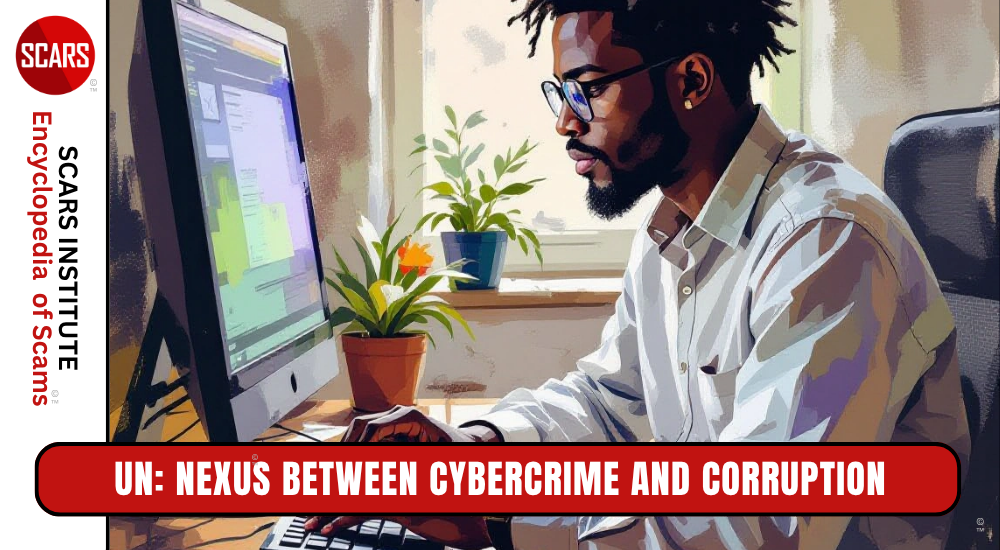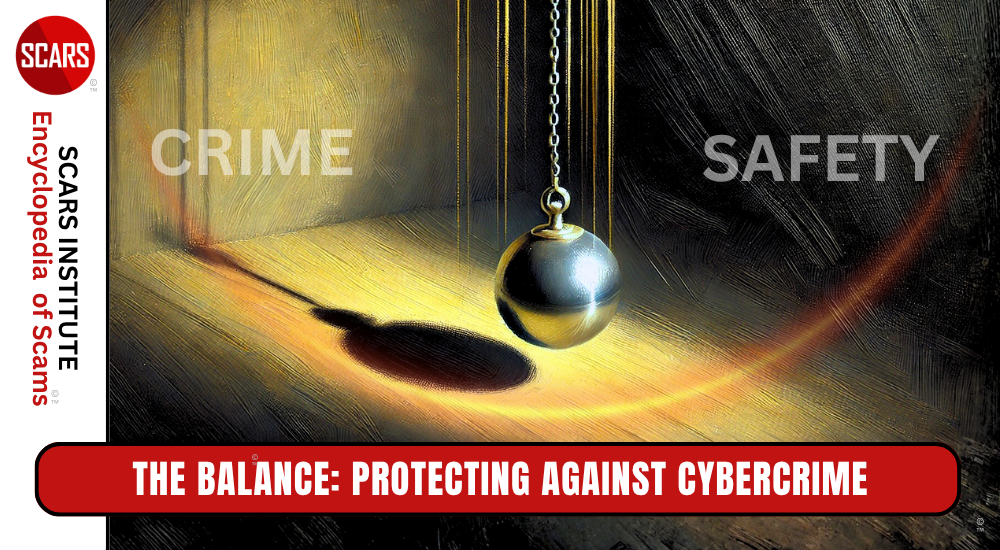
SCARS Institute’s Encyclopedia of Scams™ Published Continuously for 25 Years

SCARS is proud to be supporting a significant study on the extent and impact of Solten Valor.
A MIXED-METHODS STUDY OF STOLEN VALOR AND MILITARY IMPOSTERS: THE IMPACT OF DECEPTION
This study is completely confidential and private – your identity will never appear or be shared.
This study will better help to identify the impact of fake soldier scams and online deception associated with the use of stolen identities of U.S. Military Personnel.
You are invited to take part in this research study.
The information in this form is meant to help you decide whether or not you qualify to take part.
If you have any questions, please ask at stolenvalor@AgainstScams.org
What is the reason for doing this research study?
Military imposters falsely claiming to have performed military service or claiming to have served in a different compacity than their actual assignment is not a new phenomenon; however, it continues to be an ongoing problem with increased victimization. This is especially true with military impersonation romance scams!
While the motivations for posing as a member of the military or exaggerating one’s service recovery, the intent is almost always about gaining the respect and admiration of others. A spike in military imposters arose post 9-11 as it allowed a new generation of stolen valor and military imposters to fake being a military hero to scam others.
Stolen Valor can manifest in many different ways:
- Exaggerating military service or awards received.
- Falsifying military service when someone never served.
- Military impersonation scams – impersonating someone in the military.
The goal of this study is to examine the impact of individuals being deceived by a military imposter /deceiver.
To examine the impact of those, the goal is to get at the answers to the following research questions:
- What impact do military imposters have on the individuals they deceive?
- To what extent did the results on the deception’s impact agree with the emergent themes from individual interviews of the victims of military imposters?
This researcher aims to gain a rich understanding of the experiences of individuals deceived by military imposters. The results of this study will be compared to the findings of the previous qualitative research to examine facets of the same phenomenon. This study will introduce this phenomenon as a social problem as it places a burden on society is important in social work practice.
What will be done during this research study?
Information will be collected through this short survey.
This will include asking participants questions to gain a rich understanding of their experiences directly caused by military imposters. The survey will be divided into three categories.
- The first section: is to collect information to provide researchers with an understanding of basic demographics.
- The second section: will assist researchers to understand your direct impact during your interaction with the military imposter.
- The third section: the survey form will ask a series of questions to understand the impact after you learned you were deceived by the military imposter.
This survey should take no longer than 30 minutes to complete. This is completely confidential and your name will never be shared.
You will be first asked to consent to your participation in this confidential study.
Please remember that this is very important to help us all understand the true impact of military impersonation!
Study Survey Form
THE STUDY HAS BEEN COMPLETED
THIS PAGE IS BEING RETAINED FOR FUTURE REFERENCE
If you have questions about this research study, here is the contact information for the participants:
- Our Lady of the Lake Institutional Review Board chair Dr. Carmichael at 210-434-6711, ext. 2402, or by email, at irb@ollusa.edu
- Tyleen Caffrey, doctoral student, at tecaffrey19fl@ollusa.edu or her faculty advisor, Dr. Shibikom at afshibikom@ollusa.edu
-/ 30 /-
What do you think about this?
Please share your thoughts in a comment below!
Table of Contents
- THIS STUDY HAS COMPLETED
- A Research Study by Tyleen Caffrey
Worden School of Social Service,
Our Lady of the Lake University - SCARS is proud to be supporting a significant study on the extent and impact of Solten Valor.
- What is the reason for doing this research study?
- Study Survey Form
- THE STUDY HAS BEEN COMPLETED
- THIS PAGE IS BEING RETAINED FOR FUTURE REFERENCE
- If you have questions about this research study, here is the contact information for the participants:
LEAVE A COMMENT?
Thank you for your comment. You may receive an email to follow up. We never share your data with marketers.
Recent Comments
On Other Articles
- on Love Bombing And How Romance Scam Victims Are Forced To Feel: “I was love bombed to the point that I would do just about anything for the scammer(s). I was told…” Feb 11, 14:24
- on Dani Daniels (Kira Lee Orsag): Another Scammer’s Favorite: “You provide a valuable service! I wish more people knew about it!” Feb 10, 15:05
- on Danielle Delaunay/Danielle Genevieve – Stolen Identity/Stolen Photos – Impersonation Victim UPDATED 2024: “We highly recommend that you simply turn away form the scam and scammers, and focus on the development of a…” Feb 4, 19:47
- on The Art Of Deception: The Fundamental Principals Of Successful Deceptions – 2024: “I experienced many of the deceptive tactics that romance scammers use. I was told various stories of hardship and why…” Feb 4, 15:27
- on Danielle Delaunay/Danielle Genevieve – Stolen Identity/Stolen Photos – Impersonation Victim UPDATED 2024: “Yes, I’m in that exact situation also. “Danielle” has seriously scammed me for 3 years now. “She” (he) doesn’t know…” Feb 4, 14:58
- on An Essay on Justice and Money Recovery – 2026: “you are so right I accidentally clicked on online justice I signed an agreement for 12k upfront but cd only…” Feb 3, 08:16
- on The SCARS Institute Top 50 Celebrity Impersonation Scams – 2025: “Quora has had visits from scammers pretending to be Keanu Reeves and Paul McCartney in 2025 and 2026.” Jan 27, 17:45
- on Scam Victims Should Limit Their Exposure To Scam News & Scammer Photos: “I used to look at scammers photos all the time; however, I don’t feel the need to do it anymore.…” Jan 26, 23:19
- on After A Scam, No One Can Tell You How You Will React: “This article was very informative, my scams happened 5 years ago; however, l do remember several of those emotions and/or…” Jan 23, 17:17
- on Situational Awareness and How Trauma Makes Scam Victims Less Safe – 2024: “I need to be more observant and I am practicing situational awareness. I’m saving this article to remind me of…” Jan 21, 22:55
ARTICLE META
Important Information for New Scam Victims
- Please visit www.ScamVictimsSupport.org – a SCARS Website for New Scam Victims & Sextortion Victims
- Enroll in FREE SCARS Scam Survivor’s School now at www.SCARSeducation.org
- Please visit www.ScamPsychology.org – to more fully understand the psychological concepts involved in scams and scam victim recovery
If you are looking for local trauma counselors please visit counseling.AgainstScams.org or join SCARS for our counseling/therapy benefit: membership.AgainstScams.org
If you need to speak with someone now, you can dial 988 or find phone numbers for crisis hotlines all around the world here: www.opencounseling.com/suicide-hotlines
A Note About Labeling!
We often use the term ‘scam victim’ in our articles, but this is a convenience to help those searching for information in search engines like Google. It is just a convenience and has no deeper meaning. If you have come through such an experience, YOU are a Survivor! It was not your fault. You are not alone! Axios!
A Question of Trust
At the SCARS Institute, we invite you to do your own research on the topics we speak about and publish, Our team investigates the subject being discussed, especially when it comes to understanding the scam victims-survivors experience. You can do Google searches but in many cases, you will have to wade through scientific papers and studies. However, remember that biases and perspectives matter and influence the outcome. Regardless, we encourage you to explore these topics as thoroughly as you can for your own awareness.
Statement About Victim Blaming
SCARS Institute articles examine different aspects of the scam victim experience, as well as those who may have been secondary victims. This work focuses on understanding victimization through the science of victimology, including common psychological and behavioral responses. The purpose is to help victims and survivors understand why these crimes occurred, reduce shame and self-blame, strengthen recovery programs and victim opportunities, and lower the risk of future victimization.
At times, these discussions may sound uncomfortable, overwhelming, or may be mistaken for blame. They are not. Scam victims are never blamed. Our goal is to explain the mechanisms of deception and the human responses that scammers exploit, and the processes that occur after the scam ends, so victims can better understand what happened to them and why it felt convincing at the time, and what the path looks like going forward.
Articles that address the psychology, neurology, physiology, and other characteristics of scams and the victim experience recognize that all people share cognitive and emotional traits that can be manipulated under the right conditions. These characteristics are not flaws. They are normal human functions that criminals deliberately exploit. Victims typically have little awareness of these mechanisms while a scam is unfolding and a very limited ability to control them. Awareness often comes only after the harm has occurred.
By explaining these processes, these articles help victims make sense of their experiences, understand common post-scam reactions, and identify ways to protect themselves moving forward. This knowledge supports recovery by replacing confusion and self-blame with clarity, context, and self-compassion.
Additional educational material on these topics is available at ScamPsychology.org – ScamsNOW.com and other SCARS Institute websites.
Psychology Disclaimer:
All articles about psychology and the human brain on this website are for information & education only
The information provided in this article is intended for educational and self-help purposes only and should not be construed as a substitute for professional therapy or counseling.
While any self-help techniques outlined herein may be beneficial for scam victims seeking to recover from their experience and move towards recovery, it is important to consult with a qualified mental health professional before initiating any course of action. Each individual’s experience and needs are unique, and what works for one person may not be suitable for another.
Additionally, any approach may not be appropriate for individuals with certain pre-existing mental health conditions or trauma histories. It is advisable to seek guidance from a licensed therapist or counselor who can provide personalized support, guidance, and treatment tailored to your specific needs.
If you are experiencing significant distress or emotional difficulties related to a scam or other traumatic event, please consult your doctor or mental health provider for appropriate care and support.
Also read our SCARS Institute Statement about Professional Care for Scam Victims – click here to go to our ScamsNOW.com website.


![New Research Study on Stolen Valor - Military Scams - STUDY NOW COMPLETED [UPDATED] interpol possible money recovery Interpol Solution for Bank Wire Transfer Money Recovery - on RomanceScamsNOW.com](https://romancescamsnow.com/wp-content/uploads/2021/01/interpol-possible-money-recovery.png)
![New Research Study on Stolen Valor - Military Scams - STUDY NOW COMPLETED [UPDATED] trauma of a romance scam What To Do When Someone Close To You Experiences The Personal Trauma Of A Romance Scam](https://romancescamsnow.com/wp-content/uploads/2022/03/trauma-of-a-romance-scam.png)
![New Research Study on Stolen Valor - Military Scams - STUDY NOW COMPLETED [UPDATED] Military Impersonation Research Study New Research Study on Stolen Valor - Military Scams](https://romancescamsnow.com/wp-content/uploads/2022/03/Military-Impersonation-Research-Study.png)
![New Research Study on Stolen Valor - Military Scams - STUDY NOW COMPLETED [UPDATED] come and join 2 SCARS Institute Scam Survivor's Community portal banner](https://romancescamsnow.com/wp-content/uploads/2025/12/come-and-join-2.png)



![United States Military ID Cards - How To Spot Fakes - [UPDATED 2025] fake military id cards United States Military ID Cards - How To Spot Fakes - [UPDATED 2025] - on the SCARS Institute RomanceScamsNOW.com - the Encyclopedia of Scams™](https://romancescamsnow.com/wp-content/uploads/2022/03/fake-military-id-cards.png)


![New Research Study on Stolen Valor - Military Scams - STUDY NOW COMPLETED [UPDATED] SCARS CDN REPORT SCAMEMRS HERE e1697414569935 SCARS-CDN-REPORT-SCAMEMRS-HERE](https://romancescamsnow.com/wp-content/uploads/2018/12/SCARS-CDN-REPORT-SCAMEMRS-HERE-e1697414569935.png?_t=1697414571)
![New Research Study on Stolen Valor - Military Scams - STUDY NOW COMPLETED [UPDATED] NavyLogo@4x 81 U.S. & Canada Suicide Lifeline 988](https://romancescamsnow.com/wp-content/uploads/2023/06/NavyLogo@4x-81.png)

![New Research Study on Stolen Valor - Military Scams - STUDY NOW COMPLETED [UPDATED] niprc1.png1 150x1501 11 New Research Study on Stolen Valor - Military Scams - STUDY NOW COMPLETED [UPDATED] niprc1.png1 150x1501 11](https://scamsnow.com/wp-content/uploads/2025/04/niprc1.png1_-150x1501-11.webp)
Thanks to your website I was shocked to find his picture here. We met on facebook and chatted for hours for 3 days I suspected that he was a scammer by day 3 as he was supposed to be an army general but he had very poor use of English and didn’t spell correctly. Hmm I decided to check him on been verified and that led me here. It’s really a sickening feeling to realize you are a fool. But I’m thankful I didn’t lose any money to him but did have my phone shut off because of him they claimed I was a scammer as well. Of course I am innocent. The saddest part of all this the guy was acting so religious and used God so many times and I thought I was talking to a nice army guy. This was a real eye opener for me.thank you so much for your website.
Janice, you are not a fool, and you proved it by listening to the red flags and verifying “him.” Consider yourself a smart person, though intelligence is no real defense. You discovered what the defense is – listening to yourself and your concerns and not dismissing them. You might be surprised to know that you were probably talking to 2 or even 3 different criminals, they often work in shifts to maintain 24-hour contact with victims. So count your blessings that you dodged this bullet.